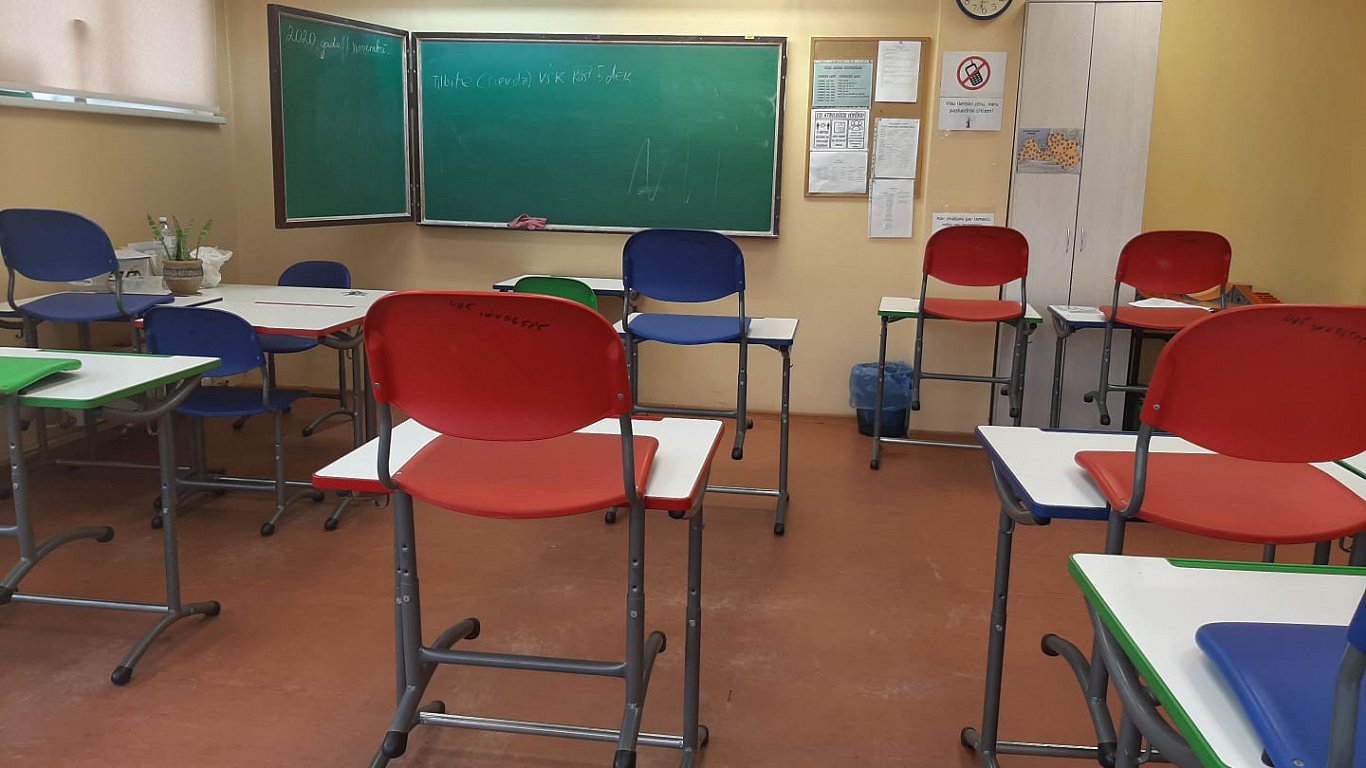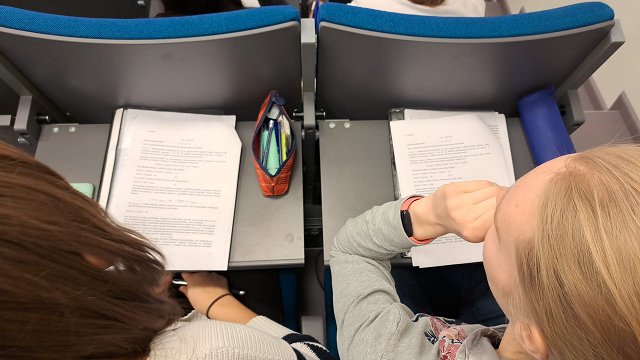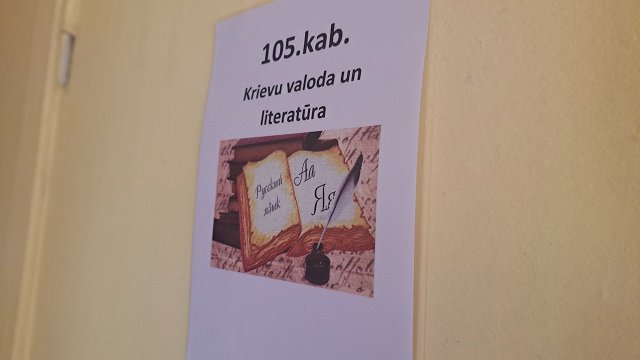“Let's say, those students who have an unsatisfactory level of grades, we have 98 of them right now throughout the school. These are pupils who have some kind of learning difficulties. Either there are n/v grades [unmarked - evaluation given for failure to submit a task], or there are failed marks,” said Limbaži State Gymnasium social counsellor Baiba Cīrule.
98 pupils in the school means each sixth. In the first semester, the number was by half lower.
“At this stage, I've noticed that pupils don't want to be physically in contact. If, for example, I call, they don't pick up, they they don't answer. But communication via text messages or Whatsapp seems acceptable to them. If I don't get in touch, I don't think I'm dealing with everything,” said Cīrule.
Psychotherapist Nils Sakss Konstantinovs shared his thoughts on the pupils who had previously been able to succeed, get good grades, excel in sports or take part in student councils, but suddenly slip so much that they might fail to finish the school year. He counsels the teens who have given up on school at least for the time being.
“Problems are starting to emerge for an increasing number of pupils. Including those who had no hardships in the past, neither in studying nor psychological. We cannot, of course, know how much it is on a national scale. We see only a small fraction to ourselves. And I think we'll also see, after the results of the exams, how much damage will have been done,” the psychotherapist said.
In his opinion, the number of such pupils could be measured in thousands. And the Minister for Education also agrees. There is a risk that adolescents currently experiencing anxiety, depression, and falling out of the education system will provide less career opportunities, lower wages and so on.
"They will be treated much more in the health system – both mental health and physical. By understanding the impact of mental health, particularly in adolescence, we can see why it is worth looking so much at the teenage stage and doing everything to eliminate problems there. Because it will have a huge impact on the country's economy, security and everything else, well, in the near future," said Konstantinovs.
What to do? And how to help? The foundation Plecs has, along with foreign experts, created a digital support tool to measure and follow the emotional well-being of pupils. The idea is to give pupils questionnaires two to three times during a school year, understanding whether a child's emotional condition affects learning achievements. Currently, the tool has been used in 15 educational establishments across the country since March, involving 10,000 pupils and 460 educators.
The intention is to distribute such questionnaires to all schools in the next school year. It needs around €700,000, and the Ministry is looking for the money.
"It is our priority, ensuring access to education and quality for children. And it is one of the first tools that, in principle, talks about noticing each child and mapping their needs,” commented Ilga Šuplinska, Minister for Education and Science.
In the meantime, the Minister considers that the extended year, which will be a week longer than in the past, will help pupils to improve their marks.
































